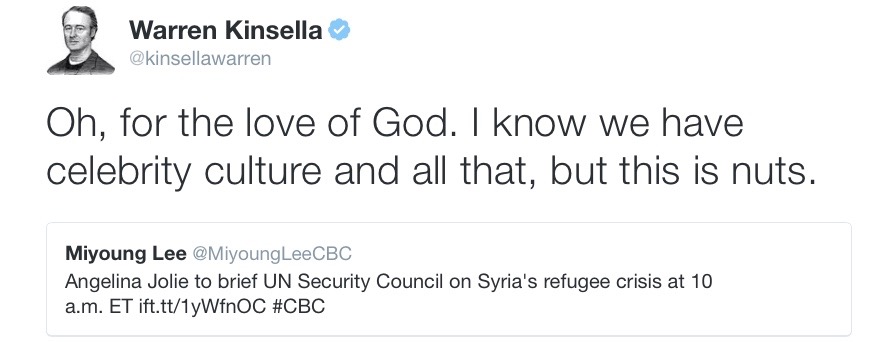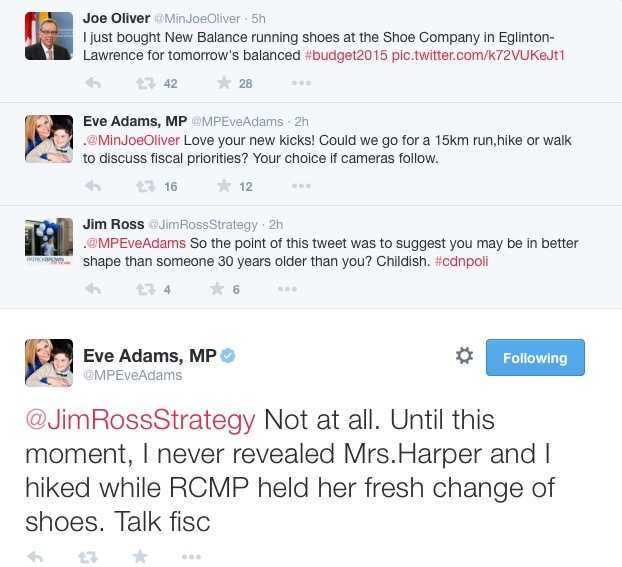The case of Oskar Groening
I have been following the prosecution of this SS Auschwitz guard closely. His blasé recitation of serial horrors isn’t noteworthy – he was indisputably a member of the Nazi killing machine, and his apparent indifference to genocide is almost predictable, notwithstanding his much-reported sophistry about “moral guilt.”
What I find surprising, instead, is the neutral – almost disinterested – tone that some reporters and editors have adopted in covering this trial. Here, then, are some truisms that I have referred to before, in a tautological trifecta:
- It is acceptable to take a position on notorious crimes.
- Notorious crimes like genocide and mass murder should be condemned.
- Condemning such notorious crimes doesn’t compromise one’s journalism, it enhances it.
The Holocaust, and the way in which it was carried out in places like Auschwitz, should not be reported on as mere allegations, as we would report on someone charged with shoplifting and appearing for the first time in provincial court. The Holocaust is no mere allegation. (Nor the Armenian genocide, which commenced 100 years ago today, and which gets referred to in similarly antiseptic reports.) By admitting he was there, facilitating genocide, Oskar Groening – though an old man, and no longer in uniform, and expressing regret – was a mass murderer like the rest of those bastards. And he deserved, and deserves, their fate.
Who’s going to win the next federal election?
Here’s what the CBC’s polling aggregator has to say:
I’m not sure I buy this theory: if the past six months have shown us anything, they’ve shown us that events can have a rather dramatic effect on voting intention.
What do you think, Dear Reader? CPC for the win, as CBC suggests? Or someone else?
Never mind Stephen Harper’s granddaughter
Just visiting the middle class©
A few folks, mostly Liberals, referred me to Justin Trudeau’s response to yesterday’s federal budget. We at Daisy were all too busy actually reading the thing, so we missed his scrum, which did not impress many of my correspondents, among them formerly elected Liberals.
I honestly don’t think how the Liberal leader spoke all that problematic. And – while the talking points he used weren’t in any way new – what he said is what concerns me the most.
To make my point, I refer you to one Michael Ignatieff. As everyone knows, the Conservatives spent around $5 million to broadcast ads that promoted the notion that Ignatieff was “just visiting.” The ads worked, and dramatically so.
The anti-Iggy ads worked, in part, because of the word that was missing from the “just visiting” tag line, not the words that were actually present. The word that was missing was “Canada.” How could Michael Ignatieff profess to care for Canada – and want to lead it, and have a vision for it – when he hadn’t lived in Canada for more than thirty years?
The Conservatives, in effect, cleverly took the one word that appeared in every single sentence that Michael Ignatieff uttered – “Canada” – and rewrote its meaning. They made viewers, and voters, feel that Michael Ignatieff was completely, utterly, fundamentally unfamiliar with the very thing that Ignatieff talked about the most: Canada.
So, too, Justin Trudeau’s much-repeated “middle class” nostrum. He says “middle class” all the time, just as he did in the clip above. When in a tough spot in a scrum about the economy, for instance, he will always reach for a reassuring line or two about the “middle class.”
The problem, of course, is that many Canadians suspect that Justin Trudeau isn’t middle class. He may know how to say those words, but he’s never lived those words. And that’s clearly why, inter alia, Stephen Harper has taken to reminding Trudeau that he is a trust fund kid, and why he resents the fact that Trudeau is a charter member of the lucky sperm club. To wit: Stephen Harper’s the Tim Horton’s-loving Hockey Dad Everyman, and Justin Trudeau has never had to worry about paying the rent or putting food on the table. Ever.
Rosedale and Westmount have taken over the Liberal Party of Canada – again. And you can reasonably expect Mr. Harper to remind us about that, over and over – and Mr. Mulcair will be doing likewise.
Think I’m wrong about my “Just Visiting the Middle Class” theory? I refer you to another case of a rich guy who talked a lot about the middle class – Mitt Romney. He certainly knew how to pronounce “middle class,” but he had never experienced “middle class.” And voters voted accordingly.
I strongly suspect the Conservatives are readying to do an Ignatieff on Trudeau – they getting ready to turn Trudeau’s own words/life against him, and at precisely the wrong time, too. Just as Michael Ignatieff could not change the fact that he had lived outside Canada for three decades, Justin Trudeau can’t change the fact that he grew up at 24 Sussex, the son of a millionaire. And the Conservatives are planning to draw attention to that fact, over and over.
Will that sort of attack work? Who knows. But it sure did against Messrs. Ignatieff and Romney, didn’t it?
Pithy (and potty) reaction to the budget
My device just spell-checked "budget" into "bidet." #cdnpoli
— Warren Kinsella (@kinsellawarren) April 21, 2015
Dear Eve Adams
On this day in 1968
The Star is not happy with Mr. Trudeau
Quotage:
- “Time is running short for Justin Trudeau to produce his policies: Liberal Leader Justin Trudeau’s charm and magnetism aren’t enough to counter his weak economic credentials..One of the biggest challenges Justin Trudeau faces is his lack of economic heft. The Liberal leader has no business or financial experience…None of the positions he has held in Parliament required financial literacy…[He has] weak economic credentials.” – Carol Goar
- “With exactly six months to go before the federal election, Justin Trudeau is facing a rising chorus of complaints about his leadership of the Liberal party. Importantly, many of the complaints are coming from within the party itself, especially among long-time Liberals who fear the party’s chances of winning the Oct. 19 election are slipping away. Their concerns are fueled by the party’s decline in recent polls, by Trudeau’s tendency for flippant and ill-considered remarks, by his failure to unveil a detailed campaign platform and by nasty fights over local riding nominations. Even top Trudeau organizers admit privately that mistakes have been made.” – Bob Hepburn
- “…it is Trudeau, not Adams, who stands to lose the most in this high-profile nomination battle. If Adams loses, then Trudeau’s reputation for political smarts and personal judgment will suffer yet another huge blow…” – Bob Hepburn
- “…many long-time Liberals, those people who stuck with the party through the Martin-Dion-Ignatieff years, are growing increasingly uneasy with Trudeau. Their unease stems from a sense that despite Trudeau having been their leader for two years, they still don’t really know who he is, what he believes in, where he stands on major issues — and where his true passions lie. It’s a damning indictment by people who should be among his most fervent supporters.” – Bob Hepburn
…and that is just stuff from a single month, April.
Not good.
Does Joe Oliver hold the fate of a government in his hands?
Not really. The last time a budget single-handedly sank a government was in the Fall of 1979, when John Crosbie offered up a fiscal stinker that ended Joe Clark’s flirtation with power. Other than that disaster, I can’t think of a federal budget – in and of itself – that killed off a government.
Besides: Joe Oliver’s pretty smart. Not for him impolitical, imprudent musing about government fiscal policy. Oliver is a disciplined message machine, from what I’ve observed. He’s no ideologue, either.
But does trouble loom on the horizon?
Waiting to the Fall to have an election? I’ve always thought it was risky for the Consetvatives to do that. What if Poloz is wrong – and plenty of economists say he is – and things are getting worse, not better?
I run a small business. I have great people working for me, and great clients to work for. I watch the ebb and flow of business very, very carefully. And I don’t get the sense that anyone thinks that the country’s economy is in great shape. Most folks, in fact, are quite nervous.
So, good luck, Joe Oliver. A government’s entire fate may not be in your hands. But a lot of it is.



